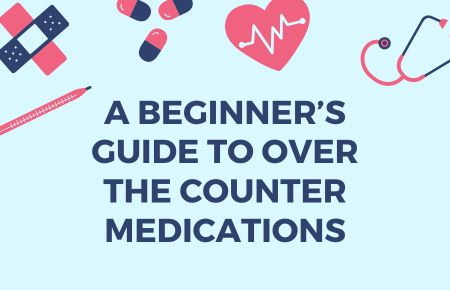Diazepam, commonly known by its brand name Valium, is a well-established medication that falls under the category of benzodiazepines. It has been widely prescribed by medical professionals for decades due to its efficacy in treating various medical conditions. In this article, we will explore the uses, benefits, and essential safety considerations of Diazepam medicine, presenting you with accurate and reliable information.
Uses of Diazepam
Diazepam is primarily prescribed to address a range of medical conditions, including:
- Anxiety Disorders: It is used to manage generalized anxiety disorder (GAD), panic disorder, and social anxiety disorder, providing relief from excessive worry and fear.
- Insomnia: Diazepam may be prescribed on a short-term basis to alleviate sleep disturbances and promote restful sleep.
- Muscle Spasms: This medicine is effective in reducing muscle spasms caused by conditions like cerebral palsy, multiple sclerosis, and spinal cord injuries.
- Seizures: Diazepam is used as an anticonvulsant to control and prevent certain types of seizures, particularly during an epileptic episode.
- Alcohol Withdrawal: It helps ease the symptoms of alcohol withdrawal, reducing the risk of severe complications.
- Sedation: Diazepam may be administered before certain medical procedures to induce sedation and alleviate anxiety.
Benefits of Diazepam
- Rapid Onset: Diazepam offers a quick onset of action, making it beneficial in acute situations where immediate relief is necessary.
- Anxiolytic Properties: As an anxiolytic agent, Diazepam helps regulate neurotransmitters in the brain, promoting a calming effect and reducing anxiety levels.
- Muscle Relaxation: Patients suffering from muscle spasms find relief in Diazepam’s muscle relaxant properties, enabling improved mobility and comfort.
- Anticonvulsant Effects: Diazepam’s anticonvulsant properties make it an essential medication in managing and preventing epileptic seizures.
- Short-term Sleep Aid: When used for short-term insomnia relief, Diazepam helps individuals fall asleep faster and achieve more restful sleep.
Safety Considerations
While Diazepam is a valuable medication, it is essential to observe certain safety precautions:
- Prescription Only: Diazepam should only be used with a valid prescription from a licensed healthcare professional. Self-medication can lead to adverse effects and dependency.
- Potential for Dependence: Benzodiazepines, including Diazepam, can be habit-forming if used long-term or in high doses. Strict adherence to prescribed dosage and duration is crucial.
- Avoid Alcohol: Consumption of alcohol while on Diazepam can result in dangerous sedation and respiratory depression. It is vital to abstain from alcohol during treatment.
- Not Suitable for Everyone: Diazepam may not be appropriate for individuals with a history of substance abuse, respiratory issues, or certain medical conditions. Inform your healthcare provider about your medical history before starting this medication.
- Tapering Off Gradually: Abruptly stopping Diazepam can lead to withdrawal symptoms. Tapering off the medication under medical supervision is essential to minimize potential withdrawal effects.
Dosage and Administration
The appropriate dosage of Diazepam varies depending on the individual’s medical condition, age, and overall health. It is available in various forms, including tablets, oral solutions, and injectable forms. Dosage instructions should always be followed as prescribed by a healthcare professional.
For anxiety disorders and muscle spasms, the typical starting dose for adults is 2-10 mg taken 2-4 times a day. In the case of insomnia, a lower dose of 2-5 mg before bedtime may be recommended. For seizure management, the dosage may vary, and patients should closely follow their doctor’s instructions.
Pediatric dosages are typically lower and should be determined by a pediatrician based on the child’s age and condition.
Side Effects
Like any medication, Diazepam may cause side effects, although not everyone experiences them. Common side effects may include drowsiness, dizziness, blurred vision, and gastrointestinal disturbances. These side effects are usually mild and tend to improve as the body adjusts to the medication.
In some cases, individuals may experience more severe side effects, such as confusion, memory problems, mood changes, and difficulty breathing. If any of these side effects are experienced, it is crucial to seek immediate medical attention.
Precautions and Interactions
Diazepam can interact with other medications, substances, and medical conditions, potentially leading to adverse effects. It is vital to inform your healthcare provider about all medications, supplements, and herbs you are taking before starting Diazepam. Avoid combining Diazepam with alcohol, opioids, or other central nervous system depressants, as this can enhance sedation and respiratory depression.
Individuals with a history of substance abuse or addiction should exercise caution while using Diazepam, as it may lead to dependency. It is generally not recommended for pregnant or breastfeeding women, as it can pass through breast milk and potentially harm the baby.
Overdose and Emergency
In the event of an overdose or accidental ingestion of a large amount of Diazepam, seek emergency medical attention immediately. Symptoms of overdose may include extreme drowsiness, confusion, slow breathing, and loss of consciousness. Store Diazepam in a secure place, away from children and pets, to prevent accidental ingestion.
Withdrawal and Discontinuation
Long-term use of Diazepam can lead to physical dependence, and abrupt discontinuation can result in withdrawal symptoms. Tapering off the medication under the guidance of a healthcare professional is essential to minimize potential withdrawal effects, which may include rebound anxiety, insomnia, and tremors.
Conclusion
Diazepam medicine is a versatile and valuable medication used to treat various medical conditions, including anxiety disorders, muscle spasms, seizures, and insomnia. Its benefits are numerous, but it should be used responsibly and as prescribed to avoid adverse effects and dependency.
Patients must follow their healthcare provider’s instructions, report any side effects promptly, and never hesitate to seek medical attention in case of an emergency or overdose. By prioritizing safety and adhering to prescribed guidelines, Diazepam can significantly improve the quality of life for individuals facing these medical challenges.
Diazepam is a reliable and effective medication with a broad range of uses, from anxiety disorders to muscle spasms and seizures. When used responsibly and under medical guidance, it provides significant benefits to patients. However, it is crucial to prioritize safety and adhere to prescribed guidelines to avoid adverse effects and dependency.
If you believe Diazepam may be beneficial for your condition, consult a qualified healthcare professional to determine the best course of treatment for your specific needs.
Thank You for Visiting our website mhnrc.org. If you liked the article, then share it with others.
Follow us on Facebook


